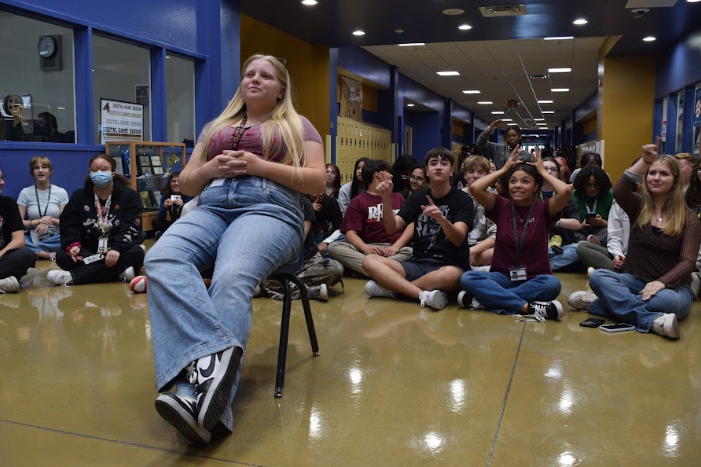To read Vinh Tran’s opposing viewpoint, click here.
In years past, the sight of technology (such as cellphones) within schools could be a potential reason for detention. In today’s digital age however, technology can work as an educational tool to assist students in learning to their fullest potential—if school administration allow it, that is.
Throughout my high school education, the usage of electronic textbooks and online resources has opened up new ways to approach teaching. However, not all people welcome this new way of absorbing information with open arms. Technology is often viewed as too distracting, too difficult to use, and overall unsuitable for classroom usage.
On the contrary, the use of technology in classrooms could be a financial and environmental savior, as well as a way to cultivate student learning. In this new age of technology, to disregard the overarchingly beneficial aspects of utilizing devices could deprive millions of students from an enhanced learning experience.
The feel of a classic page in a physical book may be sweetest to the touch, the advantages gained in making the switch over to e-books clearly indicates what would better contribute to the advancement of education as we know it.
The technical benefits of replacing textbooks with e-books alone are enough to make the change, as using online textbooks and resources save paper and money. According to a 2012 report from the Federal Communications Commission (FCC), K-12 school districts spend over $8 billion per year on textbooks. E-textbooks can save schools between $250-$1,000 per student annually.
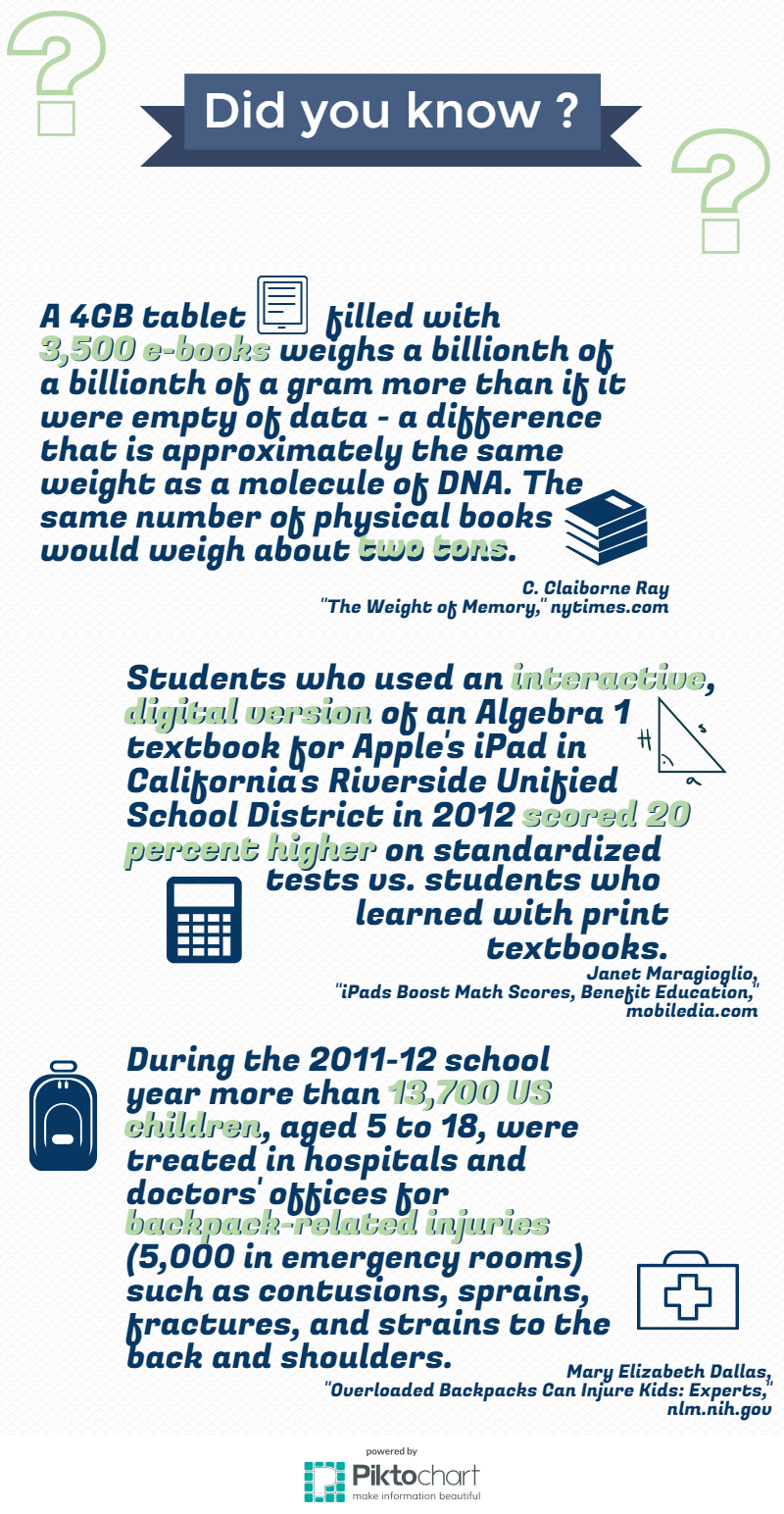
On the other hand, using technology in classrooms keep students engaged, and allows for more than a singular approach for students with different learning styles. According to a survey conducted by the Public Broadcasting Service (PBS), it was also concluded that 77% of teachers found technology to “increase student motivation to learn.”
Additionally, e-books allow an easier way to access updated versions of textbooks. Instead of repurchasing an entirely new and costly class set of books, the online textbook could be updated at one’s fingertips to reflect the most timely and accurate information.
To those who argue that the use of technology and e-books in classrooms (and at home) can be more of a distraction than an educational tool, hear me out: students will get distracted no matter what they use to study information. Before tablets ever existed, students distracted themselves with board games, books, or whatever form of entertainment was available to them. Procrastination is not a generational issue; if students choose to abuse technology, it is their own fault, not a fault in the technology.
While for some, the feel of a classic page in a physical book may be sweetest to the touch, the advantages gained in making the switch over to e-books clearly indicates what would better contribute to the advancement of education as we know it.

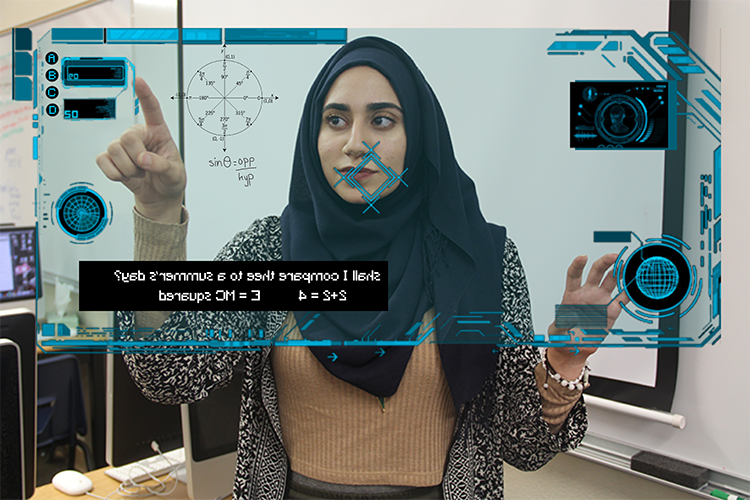





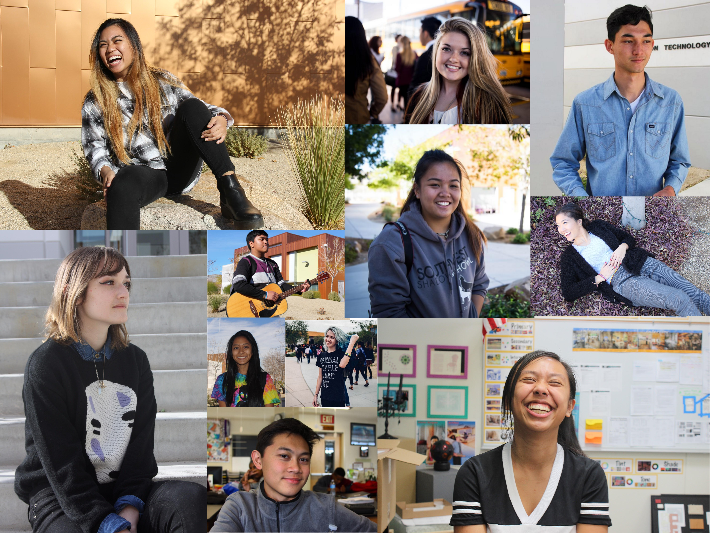






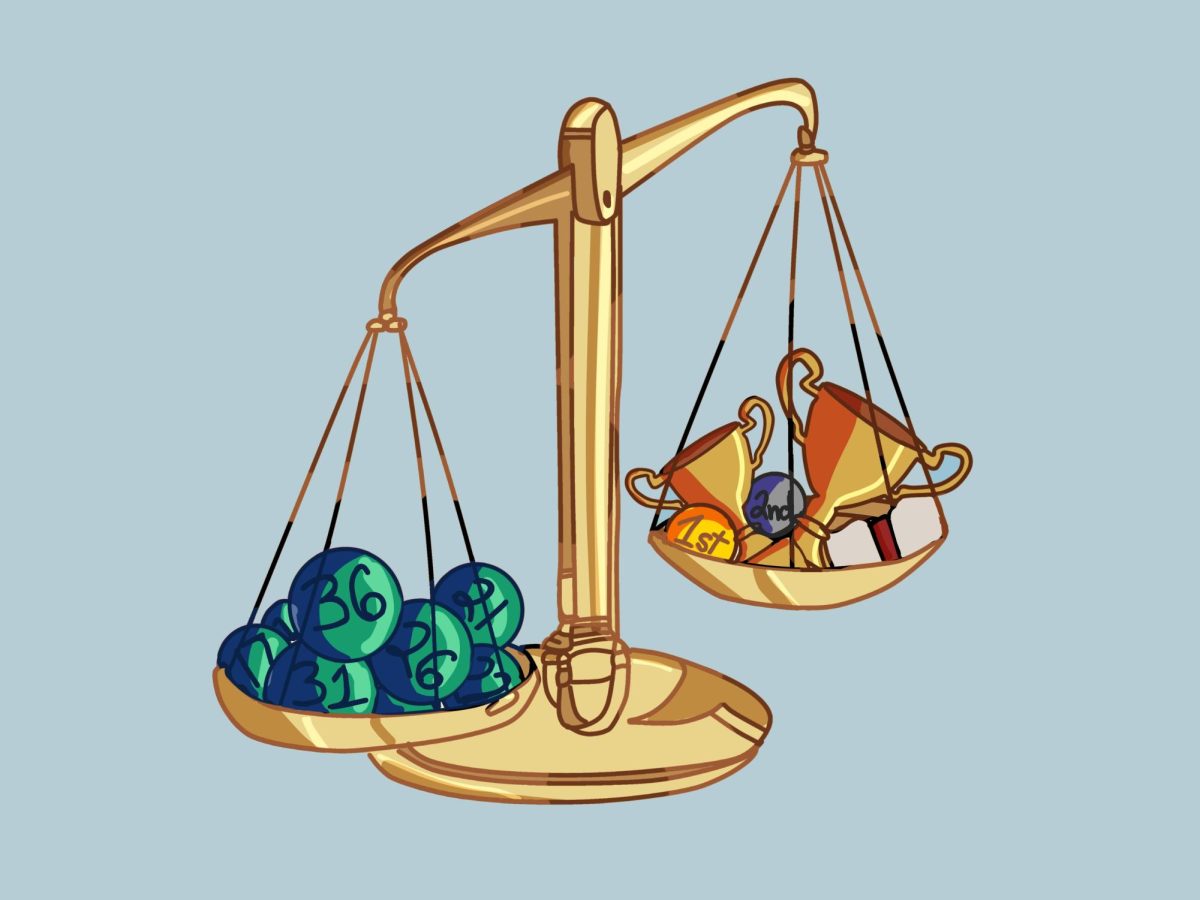

![Weighing her options, senior Allyana Abao decides between going on a practice drive or calling an Uber. Though unlicensed, Abao has considered driving to be a significant milestone of teen independence despite alternatives that provide much easier solutions.
“You're able to be independent and not rely on others,” Abao said. “You're able to get a job, get things that you need, go places you need to go. I have so many places that I want to go to and I ask [my family] for so much. I want to be independent to where they know that I can do things on my own, so they know that they don't have to be there for me.”](https://southwestshadow.com/wp-content/uploads/2025/10/IMG_2922-1200x900.jpg)
![Looking at the board, former BSU secretary Christina Altaye begins to prepare for BSU’s second year of Club Feud. This year, “Are You Smarter Than a Ninth Grader?” will be replacing this event. “I think it’s a fun change [to Club Feud],” BSU Activities Director Hellen Beyene said. “[I think] it’s always fun to do something new and different.”](https://southwestshadow.com/wp-content/uploads/2025/10/Screenshot-2025-09-29-11.06.43.png)

